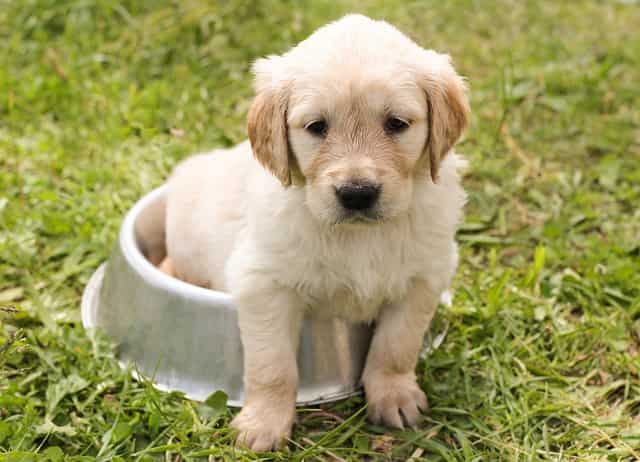
If you’re a dog owner, you know that taking your furry friend for a walk is an essential part of their daily routine. However, sometimes your dog may take longer than usual to do their business. Whether you’re in a rush or just want to make the process more efficient, there are a few things you can do to help your dog poop faster.
First, it’s important to establish a consistent routine for your dog. This means taking them out for a walk at the same time every day and in the same location. Dogs thrive on routine, and this can help stimulate their digestive system and encourage them to go to the bathroom more quickly.
Another tip is to make sure your dog is getting enough exercise. Regular exercise can help regulate your dog’s bowel movements and make it easier for them to go to the bathroom. Additionally, providing your dog with a healthy diet and plenty of water can also help promote regular bowel movements.
Understanding Your Dog’s Digestive System

Dogs have a unique digestive system that is designed to break down and absorb nutrients from their food. Understanding how your dog’s digestive system works can help you identify any potential issues and take steps to ensure that your dog is healthy and happy.
The digestive system of a dog is made up of several parts, including the mouth, esophagus, stomach, small intestine, large intestine, rectum, and anus. Each of these parts plays an important role in the digestion and absorption of food.
When your dog eats, the food is broken down in the mouth by enzymes and saliva. The food then moves down the esophagus and into the stomach, where it is further broken down by stomach acid and enzymes. From there, the food moves into the small intestine, where nutrients are absorbed into the bloodstream. The remaining waste then moves into the large intestine, where water is absorbed and the waste is formed into feces.
It is important to note that the digestive system of a dog is not as efficient as that of a human. This means that it can take longer for food to be digested and for waste to be eliminated. Additionally, certain factors such as stress, illness, and medication can affect your dog’s digestive system and cause constipation or diarrhea.
To help ensure that your dog’s digestive system is functioning properly, it is important to provide a balanced and nutritious diet, avoid feeding table scraps or other foods that can cause digestive upset, and ensure that your dog has access to plenty of fresh water. Regular exercise can also help keep your dog’s digestive system healthy and promote regular bowel movements.
Factors That Affect Your Dog’s Bowel Movements

This knowledge can help you identify potential issues and take appropriate action to keep your furry friend healthy and comfortable.
Here are some of the most common factors that can affect your dog’s bowel movements:
- Diet: The food your dog eats can have a significant impact on their bowel movements. A diet that is high in fiber can help regulate bowel movements, while a diet that is low in fiber can lead to constipation.
- Hydration: Adequate hydration is essential for healthy bowel movements. If your dog is dehydrated, their stool may be hard and difficult to pass.
- Exercise: Regular exercise can help keep your dog’s digestive system functioning properly. If your dog is not getting enough exercise, they may experience constipation or other digestive issues.
- Stress: Just like humans, dogs can experience stress that can affect their bowel movements. If your dog is experiencing stress, they may have irregular bowel movements or diarrhea.
- Medical conditions: Certain medical conditions, such as inflammatory bowel disease or intestinal parasites, can affect your dog’s bowel movements. If you notice any changes in your dog’s bowel movements, it’s important to consult with your veterinarian to rule out any underlying medical issues.
Tips to Help Your Dog Poop Faster
As a responsible pet owner, it’s important to ensure your dog is comfortable and healthy. One of the ways to do this is by helping your dog poop faster. Here are some tips:
- Take your dog for a walk: Exercise can help stimulate your dog’s digestive system and promote bowel movements. A 10-15 minute walk can help get things moving.
- Establish a routine: Dogs thrive on routine, and having a consistent schedule for feeding and potty breaks can help regulate their bowel movements.
- Provide a comfortable environment: Make sure your dog has a comfortable and safe space to do their business. This can reduce stress and anxiety, which can sometimes lead to constipation.
- Adjust their diet: A diet that is high in fiber can help promote regular bowel movements. Consult with your veterinarian to determine the best diet for your dog’s specific needs.
By following these tips, you can help your dog poop faster and ensure their overall health and well-being.
When to Seek Veterinary Help

While most dogs will poop on their own without any issues, there are times when you should seek veterinary help. Here are some signs that indicate it’s time to take your dog to the vet:
- If your dog is straining to poop and nothing is coming out, it could be a sign of an obstruction in their digestive system.
- If your dog is experiencing diarrhea or vomiting, it could be a sign of an underlying health issue.
- If your dog’s poop is consistently watery or contains blood, it could be a sign of an infection or other health issue.
- If your dog is showing signs of pain or discomfort while pooping, it could be a sign of an anal gland issue or other health issue.
If you notice any of these signs, it’s important to take your dog to the vet as soon as possible.